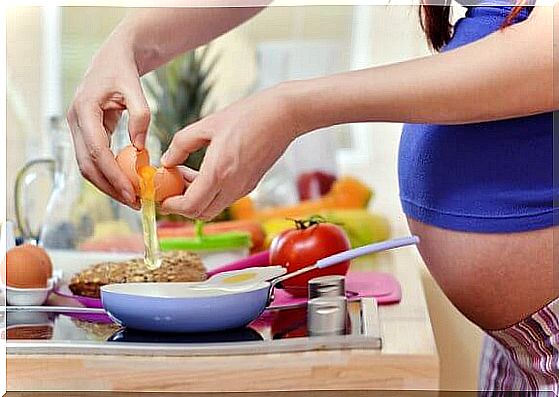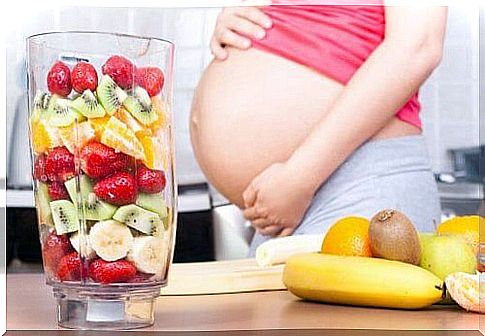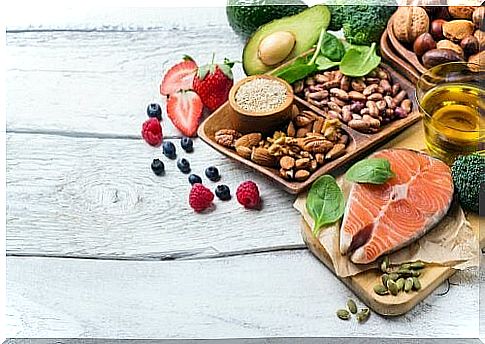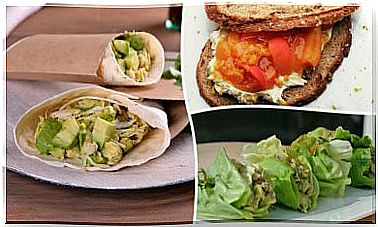Pregnant Women’s Feeding Guide

Proper nutrition for pregnant women and for mothers who have given birth ensures the baby’s health and growth. We must not forget that what women eat and drink is a source of nutrition for the little ones. That’s why it’s so important to choose the right food choices in order to provide your body with the elements it needs.
A pregnant woman needs large amounts of calcium, iron, protein and folic acid. The reason for this is that these nutrients help prevent brain disorders, deficiencies in bone formation, lack of oxygen in the circulatory system, and deficiencies in muscle tissue.
Food for pregnant women. What should you eat?
- Greek yogurt. This dairy product is especially beneficial for pregnant women because it contains more calcium than all other dairy products. In addition, it also contains probiotics that help improve digestive health and prevent infections.
- Legumes such as lentils, peas, beans and peanuts. These foods contain fiber, folate and many other nutrients that prevent illness in both mother and baby.
- Eggs. Contains a little of every nutrient you need for a healthy diet. One of these elements is choline, a molecule that facilitates brain development, both physically and functionally.
- Lean meats. Beef, pork and chicken are excellent sources of protein, iron, choline and B-complex vitamins.
- Berries and Berries. These little foods are full of water, healthy carbohydrates, vitamin C, fiber and antioxidants. In addition, they are also ideal for calming anxiety without multiplying your caloric intake.

- Avocado. It is an unusual fruit due to its high content of healthy fatty acids for the body. It also contains vitamins B, K, E and C, plus potassium and copper. All of these are nutrients that help relieve leg cramps, which are frequent during pregnancy.
- Oilseeds. They are ideal in the diet during pregnancy because, despite being small in size, they are nutrient-dense.
Types of food
Each type of food has benefits in feeding pregnant women:
- Grains are ideal to supply the need for an energy source.
- In turn, fruits and vegetables contain abundant amounts of antioxidants. They are also rich in fiber and vitamin complexes.
- Meats, oilseeds and vegetables have the protein, folic acid and iron the body needs.
- Dairy products of different types are sources of calcium and vitamin D. One of the most convenient for the mother’s body is yogurt.
What foods or beverages should be limited in the diet of pregnant women?
- Caffeinated beverages. The limit considered safe is less than 200 mg per day, equivalent to 350 ml. However, if you can avoid them completely, it will be more convenient for you and your baby’s health.
- Salmon and sardines are rich in omega three fatty acids and proteins. But there are other fish, like the albacore, for example, that have large amounts of mercury and therefore should be limited in the diet.
- Alcoholic beverages. Alcohol in the mother’s bloodstream passes directly to the baby through the umbilical cord. This substance, in such a small organism, can cause physical, cognitive and behavioral problems in the future.
- Unpasteurized dairy products. Pregnant women are more susceptible to parasites and bacteria found in foods that have not been properly handled.

Another thing to keep in mind is that it’s not just healthy foods that make a difference in a good diet. In addition to them, the body also needs a good supply of water and vitamin supplements that may be needed. Many nutrients are not abundant in food, so alternative sources should be sought.
When thinking about the best diet for pregnant women, we should know that during pregnancy, nutritional needs change. However, the idea is not to increase portion sizes. What needs to be guaranteed is the intake of micro and macro nutrients that are necessary for the healthy development of mother and baby.









